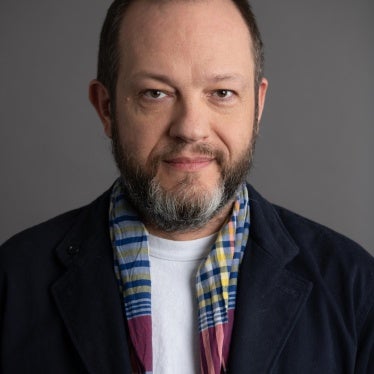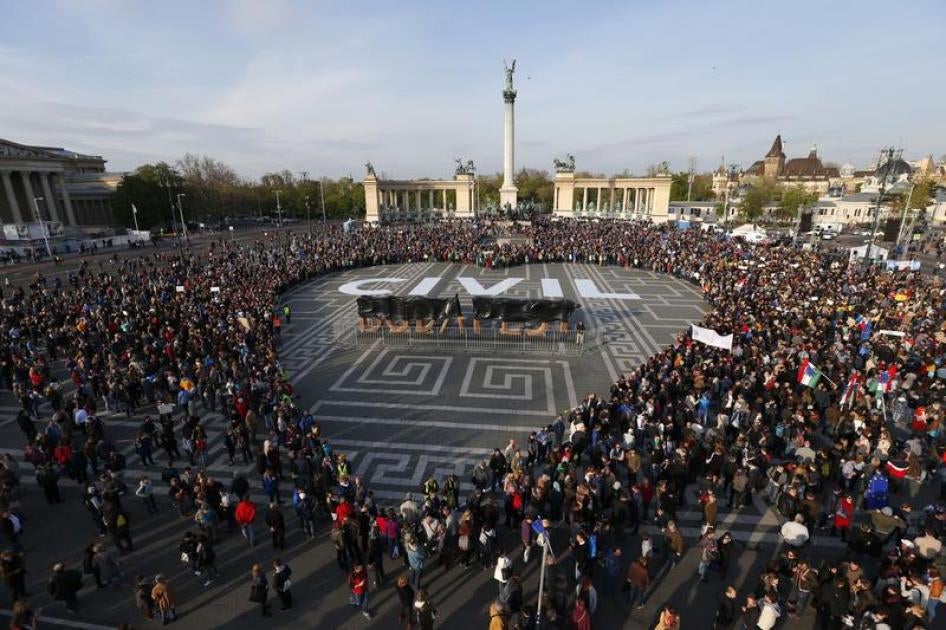It’s been a deeply sobering and troubling few weeks for people who care about the future of human rights, democracy and the rule of law in Europe. But what is already clear is that European governments, including in the UK, need to take better care of their own democratic institutions and rule of law.
From the US Vice-President’s speech in Munich about Europe’s greatest threat coming from within, the US siding with Russia at the UN over its full-scale invasion of Ukraine, and the Oval Office meeting between the US and Ukrainian Presidents, there is a lot of uncertainty at this point about what the new US government’s stance means for Europe’s security and its future.
Much debate is focused on increasing defense spending and pan-European security cooperation, tackling disinformation and guarding against malign interference with elections. Whatever the merits of those actions, they won’t be enough to preserve Europe’s future unless its governments and institutions are determined to meaningfully stand up for shared values at home.
Institutions like the Council of Europe – home of Europe’s human rights court and rights treaty – were founded alongside the UN in the wake of the Second World War and the ashes of Europe. They were designed to protect and uphold those shared values including human rights and in doing so to serve as a bulwark against future conflict.
Human rights are vital to the health of democracies. They require the state to act in a way that protects everyone in society, and to help provide recourse if it doesn’t. The freedoms they contain—including of thought, expression and association—guarantee the space needed for discourse that challenges the government. Human rights help make it possible for civil society, the media, and independent courts–-critical democratic institutions—to function.
If European leaders respond to expanding external threats now without standing up for human rights and defending democratic institutions at home, they will fail. And Europe will have lost the foundations that help protect all of us.
Political leaders in the EU and UK have recently appeared willing to set aside universal human rights, criticize the courts, undermine protest and civil society or interfere in the media for the sake of political expediency. And some governments - notably Hungary’s - have hollowed out democracy from within, with damaging consequences for human rights inside and outside the country.
Where Hungary’s Fidesz government has gone, other ruling parties in Europe, ostensibly still committed to open democracy, seem tempted to follow.
On 24 February, the party leading talks to form Germany’s next government called in Parliament for an investigation into civil society groups that criticized political parties, compounding existing concerns about curbs on peaceful protest and activism in the country. In France, legislation has chilled freedom of association and risks curbing the capacity for action by groups critical of the state.
In Greece, the ruling party is subjecting the media to pressure and interference. In Poland, activists face jail for helping migrants facing death and injury on the border with Belarus. And in the UK, with tightened restrictions on protest, environmental activists have been jailed for peaceful protest.
A true defense of Europe and its core values needs to strengthen rather than weaken checks on executive power: the courts, civil society, the media and the legislature. It needs to hold accountable governments and institutions that fail to do so. This should ideally happen through national legislatures and the courts, and if necessary through regional and international bodies, including the Council of Europe, UN bodies, and in the case of EU states, European Union institutions.
Respect for international law is not a weakness in times like these. It is a commitment to shared values and the rule of law.
Governments in Europe also need to reject voices inside and outside who would seek to divide societies and communities or suggest that some people are more deserving of rights than others. Failure to do so creates space for normalization of hate and marginalization of minorities in politics, and history shows it can be a pathway to tyranny.
We are seeing debates on migration that ignore or effectively erase the human beings who suffer the consequence of discrimination, marginalization and abuse at the hands of the state. True European leadership means standing up for rights for all regardless of their identities and backgrounds.
A rhetorical commitment to rights and the rule of law won’t count for much if governments don’t match it with responsible action or apply it inconsistently. Voters at home will see through it and hostile states abroad will exploit it as evidence that Europe is an easy pushover and its much-vaunted values are empty.
Defending democracy in Europe starts at home with human rights and the rule of law.










